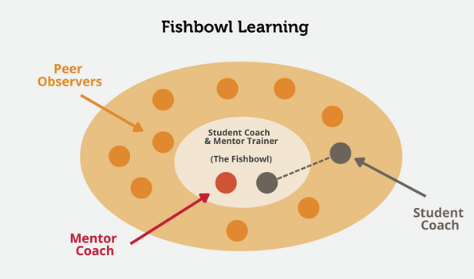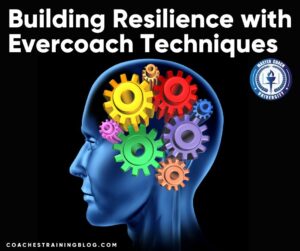Mentor Coaching refers to a process of coaching with expert feedback, provided by experienced coaches to individuals who are pursuing Coach Certification or renewing their Coaching Credentials. Being mentored is an incredibly useful experience and allows coaches to develop and refine their coaching practice and identify, and is a curriculum requirement for any ACC or PCC Accredited Coach Education.

The Benefits of Mentor Coaching
Improving Coaching Competencies
One of the most direct benefits of Mentor Coaching is the measurable improvement in coaching competencies. Coaches receive structured feedback aligned with the ICF Core Competencies, which serves as a developmental map for mastering skills such as active listening, powerful questioning, and fostering trust. According to Passmore and Fillery-Travis (2011) in Coaching: An International Journal of Theory, Research and Practice, structured developmental feedback is one of the most effective ways to facilitate growth in coaching performance. Coaches who receive competency-based guidance are more likely to internalize these standards and apply them with nuance and flexibility in client sessions, which significantly enhances their coaching effectiveness over time.
Enhancing Reflective Practice
Mentor Coaching also cultivates a deeper level of reflective practice, a quality identified as critical for coaching mastery. Reflection allows coaches to explore not just what they do, but how they are being during coaching interactions. Research published in the International Journal of Evidence-Based Coaching and Mentoring (IJEBCM) emphasizes that critical reflection is strongly correlated with coaching efficacy and long-term development (Lawrence & Whyte, 2014). Through reviewing recorded sessions and engaging in reflective dialogue with a mentor, coaches gain insight into their habits, assumptions, and communication style, ultimately fostering greater self-awareness and intentionality in their work.
Understanding the ICF Core Competencies
A fundamental goal of Mentor Coaching is to help coaches internalize the ICF Core Competencies, which form the backbone of ethical, effective coaching. These competencies go beyond skill to represent a holistic framework of presence, ethics, and client-centered partnership. The coaching literature has increasingly emphasized the importance of competency frameworks in shaping professional identity. In particular, Bachkirova and Lawton Smith (2015) note that aligning with recognized frameworks such as ICF helps coaches navigate complexity and ambiguity with greater confidence. Through mentor feedback based on these competencies, coaches are able to calibrate their style and delivery to reflect a globally recognized professional standard.
Building Confidence
Confidence is a critical component of coaching presence, and Mentor Coaching is one of the most effective ways to build it. Coaches often begin the credentialing process with doubts about whether they “measure up,” but consistent, constructive feedback gradually strengthens their self-trust. A study by de Haan et al. (2016) highlighted that coach self-efficacy is directly linked to developmental feedback and supported learning environments, both of which are core elements of Mentor Coaching. As coaches witness their growth across multiple sessions, they become more grounded and authentic in how they engage clients, leading to more impactful coaching conversations.
Ethical Considerations
Ethical competence is essential to responsible coaching, and Mentor Coaching provides a safe space to explore real-world ethical dilemmas. Rather than abstract discussions, mentors often use actual coaching scenarios to guide ethical reasoning, which increases practical awareness. According to Ladyshewsky (2010), coaching education that includes ethical dialogue enhances both moral reasoning and client safety. By embedding ethics into Mentor Coaching, coaches not only meet ICF expectations but also build a durable foundation for professional integrity and decision-making.
Personal Growth
Finally, Mentor Coaching supports coaches in their personal growth, helping them evolve not just as professionals but as reflective practitioners and human beings. This dimension of growth is often underappreciated, yet it is central to long-term sustainability in coaching. Coaches frequently report that the insights gained during mentoring sessions lead to increased empathy, emotional intelligence, and alignment between personal values and coaching presence – all of which contribute to a more impactful practice.
Mentoring provides professional assistance in achieving and demonstrating the levels of coaching competency and capability demanded by the desired credential level. It is a “collaborative, appreciative and dialogued process based on an observed or recorded coaching session to increase the coach’s capability in coaching, in alignment with the ICF Core Competencies (). Read more….
Requirements of the ICF
The International Coaching Federation (ICF) sets rigorous standards to ensure that coaches are both competent and ethical in their practice. For those pursuing their ACC (Associate Certified Coach) or PCC (Professional Certified Coach) credentials, Mentor Coaching is a mandatory requirement and a key part of their development pathway.
To apply for an ICF credential (ACC or PCC), coaches must complete 10 hours of Mentor Coaching. These 10 hours must include at least 7 hours of group Mentor Coaching, where coaches participate in sessions with other peers under the guidance of a qualified mentor, and at least 3 hours of one-on-one Mentor Coaching, providing personalized feedback and focused development aligned with the ICF Core Competencies. These sessions must be led by a qualified ICF-credentialed Mentor Coach and focus on observed or recorded coaching aligned with the ICF Core Competencies.
Mentor Coaching and ICA’s Coach Training
Mentor Coaching at ICA takes place over a 4 – 12-month period in a cycle that allows for listening and feedback from the Mentor Coach while also allowing reflection and practice on the part of the student coach being mentored. It is progressive learning with a period of 4 months between the first and the final session.
The Mentor Coaching classes are run using a “fishbowl strategy”. At its most basic, a ‘Fishbowl’ conversation is a dialogue that occurs between a smaller group of people while a larger group looks on. It is often used in very large groups, such as a conference, where it would be impossible for everyone to participate. The topic or discussion is had by a smaller group while the rest of the participants look on, reflecting and observing. In Mentor Coaching Labs, the Student Coach and the Mentor Coach Trainer are inside the fishbowl. The Student Coach plays their recording and then engages in a Mentoring dialogue with the Trainer while the other students look on, observing and reflecting.

The added benefit of bringing a recording rather than coaching live in class is that the Student Coach can be both INSIDE and OUTSIDE the fishbowl at the same time. They are OUTSIDE the fishbowl while the recording is being played and are able to look on as a 3rd party observer. This distance allows the student to reflect on their own coaching, noticing things such as tone and style, as well as identifying specific competency areas that might require further development.



